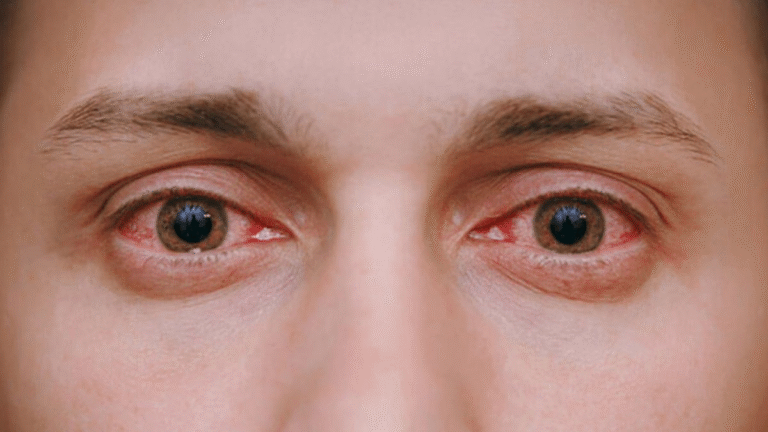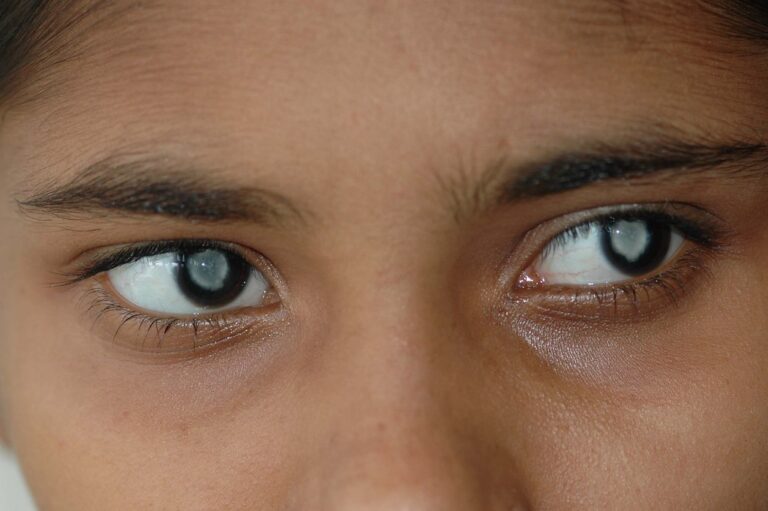What Causes Sudden Blurred Vision? Understanding the Possible Reasons and What to Do

Blurred vision can be a frightening experience, especially when it happens suddenly. One moment you’re seeing things clearly, and the next, everything seems out of focus. While some causes of sudden blurred vision are harmless and temporary, others could be signs of more serious health problems that need urgent attention.
In this article, we’ll explore the most common causes of sudden blurred vision, what they might mean for your health, and when it’s important to see a doctor. We’ll also answer frequently asked questions to help you better understand this eye concern.
What Is Blurred Vision?
Blurred vision means that your eyesight is not sharp. It might feel like you’re looking through a dirty window or foggy glass. You may struggle to see fine details or have difficulty reading small text. Blurry vision can affect one or both eyes and can happen gradually or suddenly.
Sudden blurred vision, as the name suggests, develops quickly, over a few minutes or hours. Sometimes it may last for only a short time, while other times it can persist until the root cause is treated.
Common Causes of Sudden Blurred Vision
Here are the main reasons why you might suddenly experience blurred vision:
1. Eye Strain or Fatigue
Spending long hours staring at screens—like computers, phones, or TVs—can tire your eye muscles. This digital eye strain can lead to sudden blurred vision, dryness, and even headaches. Blinking less while using screens is also a factor.
2. Dry Eyes
Your eyes need moisture to stay healthy and focused. If they become too dry due to environmental conditions or overuse, your vision may suddenly become blurry. This is often worse at the end of the day or in dry indoor environments.
3. Refractive Errors
Sometimes, you may experience sudden blurred vision because of changes in your eyesight. This includes conditions like:
- Myopia (nearsightedness)
- Hyperopia (farsightedness)
- Astigmatism
If you wear glasses or contact lenses, a change in your prescription might cause blurriness.
4. Eye Infections or Inflammation
Infections such as conjunctivitis (pink eye) or conditions like uveitis and keratitis can cause inflammation inside the eye. This can lead to blurry vision, redness, pain, and sensitivity to light.
5. Migraine Headaches
Migraines often come with visual disturbances known as “auras.” You might see flashing lights, zigzag lines, or experience blurry vision right before a migraine strikes. For some people, the vision problems can happen even without a headache.
6. Low Blood Sugar (Hypoglycemia)
People with diabetes may experience sudden blurred vision when their blood sugar drops too low. It can also be accompanied by sweating, dizziness, or confusion. This is an emergency and should be treated quickly.
7. High Blood Pressure (Hypertension)
Sudden spikes in blood pressure can affect the blood vessels in your eyes, leading to blurred or distorted vision. Long-term high blood pressure can damage the retina, the part of the eye that senses light.
8. Retinal Detachment
This is a serious condition where the retina pulls away from the back of the eye. It often causes sudden blurry vision, flashing lights, or the appearance of a shadow or curtain across your vision. This is a medical emergency.
9. Stroke
A stroke can affect the part of the brain that processes visual information. If one side of your vision suddenly disappears or becomes blurry, especially with other symptoms like weakness, slurred speech, or confusion, call emergency services immediately.
10. Eye Injuries
Accidental injury to the eye, even a small scratch or poke, can cause immediate blurring. If this happens, avoid rubbing your eye and seek medical help.
11. Medications
Some medicines can cause side effects like dry eyes or blurred vision. These may include:
- Antidepressants
- Allergy medications (antihistamines)
- Blood pressure medications
Always read the side effect warnings and speak with your doctor if vision problems occur.
When to See a Doctor
While some causes of blurred vision are minor, you should see a doctor immediately if you experience:
- Sudden vision loss in one or both eyes
- Flashes of light or floaters
- Severe eye pain or redness
- Difficulty speaking or moving
- Dizziness or confusion
These could signal a medical emergency, like a stroke, retinal detachment, or serious eye infection.
Tips to Prevent Sudden Blurred Vision
Here are a few simple steps to help reduce your risk:
- Take breaks from screens (use the 20-20-20 rule: every 20 minutes, look 20 feet away for 20 seconds)
- Wear proper prescription glasses or contacts
- Stay hydrated and eat a balanced diet
- Control blood sugar and blood pressure levels
- Use eye protection during risky activities (like sports or construction work)
- Avoid rubbing your eyes, especially with dirty hands
Final Thoughts
Sudden blurred vision can be alarming, but not all causes are dangerous. Still, it’s important not to ignore it—especially if it comes with other unusual symptoms. Some eye issues can be treated easily if caught early, while others may lead to permanent damage if left unchecked.
If you’re ever unsure, it’s best to talk to an eye specialist or your primary care doctor. Your eyes are precious—taking good care of them today can protect your vision for the future.
Frequently Asked Questions (FAQs)
1. Can stress or anxiety cause sudden blurred vision?
Yes, intense stress or anxiety can trigger physical symptoms, including blurred vision. This is usually temporary and improves as your stress levels come down.
2. Is sudden blurred vision in one eye more serious than both?
Not necessarily, but blurred vision in one eye could point to issues like retinal detachment or a blocked blood vessel. It’s best to get it checked promptly.
3. Can dehydration cause blurry vision?
Yes, dehydration can reduce the production of tears, causing dry eyes and blurred vision. Drinking enough water is essential for eye health.
4. What’s the difference between blurred vision and cloudy vision?
Blurred vision makes things look out of focus, while cloudy vision may seem like you’re looking through a haze or fog. Cloudy vision can be a sign of cataracts or other medical issues.
5. How long does sudden blurred vision usually last?
It depends on the cause. Some cases (like eye strain or dry eyes) may clear up in minutes or hours. Others, like infections or strokes, may persist and require medical treatment.
Dr. Emma Green is a health and wellness expert with over 10 years of experience in nutrition and fitness. Passionate about helping others live their healthiest lives, Dr. Green shares practical advice on wellness, nutrition, and sustainable living through LivingSpristine.






